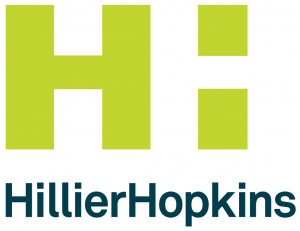Robyn qualified as a Chartered Tax Adviser in 2012 and deals with a portfolio of up to 300 personal tax clients.
Why did you choose a job in the tax profession?
As you will probably find from many other tax professionals, I didn’t exactly choose a job in this profession. While still at school, I decided I would like a job that would pay well, but also one where I would eventually be able to go part time, so I thought about chartered accountancy. When it came to finding a vacancy, I had heard that a large firm of accountants with an office nearby, Menzies, were recruiting and I decided to apply – despite the only vacancy being for a tax trainee.
Needless to say, I got the job and I am very glad I did. With hindsight, my personality is better suited to tax than to accountancy.
What are your main duties?
I have recently moved firms, so my current role is slightly different to my previous eight years of experience. In the last eight years I have mainly been dealing with a large portfolio of personal tax clients who range from high-net-worth individuals to artists; property investors to tradesmen. The bulk of this type of role is centred on meeting the tax return deadline (31st January) for all my allocated clients.
What are the most stressful parts of the job?
Most advisers who work in a compliance role will say the same thing: meeting the January deadline. January can be a long month and often I will prepare over 100 returns, which constitutes around 40% of my entire year’s work. This isn’t because I’ve been slacking for the rest of the year, though. It is usually because my clients are busy people and need lots of help and encouragement to send me their documents, and realistically, many of them don’t manage to do this until the last minute.
What do you enjoy most about your job?
I really like that tax can be flexible and full of opportunities. I do like having a desk job but I also like that I can shake this up a bit by getting involved in various non-desk projects.
What are your non-desk projects?
I have established relationships with local colleges and universities, as well as some other education organisations, which has resulted in me getting in front of many people looking for careers advice. Sometimes this is on a one-to-one basis, and on occasion I have been put into a room of 70 or more college students!
To facilitate the above I contacted one of my professional institutes, the ATT, and have since then also been able to get involved in some of their events, such as being a speaker at the 2014 Accountex exhibition in London Excel. Over 120 professionals turned up to hear my talk on a tax issue called IR35!
In tax there are many opportunities to think outside of the box and add an extra string to your career bow. There are always little niches you can become expert in, and most firms will be happy for you to express an interest in getting involved with their marketing activities.
What skills are useful in the tax profession?
Organisational skills and an analytical approach are, in my opinion, the two most important qualities. Being a ‘people person’ certainly helps if you are in a client-facing role.
Do you have any advice for anyone wanting to get into tax?
Talk to any tax professionals you can get in touch with and quiz them. If you can get a couple of weeks’ work experience in tax, then take it. And of course, read as much as you can at Inside Careers, as it really is a fantastic resource.





